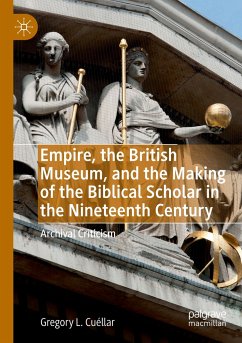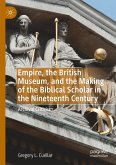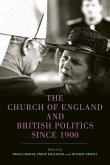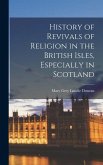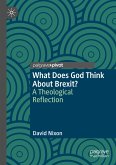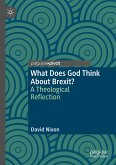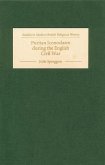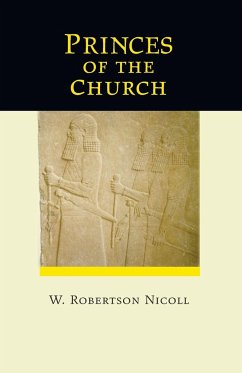Since the modern period, the field of biblical studies has relied upon libraries, museums, and archives for its evidentiary and credentialing needs. Yet, absent in biblical scholarship is a thorough and critical examination of the instrumentality of the discipline's master archives for elite power structures. Addressing this gap in biblical scholarship lies central to this book. Interrogated here is a premier repository or master archive of the discipline: the British Museum. Using an assemblage of critical theories from archival discourse to postcolonial studies, space theory to governmentality studies, the focal point of this book is at the intersections of the Museum's rise to scientific prominence, the British Empire, and the conferring of scientific authority to modern biblical critics in the nineteenth century. Gregory L. Cuéllar initiates a season of historicization of the master archives of biblical studies and archival criticism.
"Cuéllar's work is incisive, persuasive, and important. ... Cuéllar's task in Empire, the British Museum, and the Making of the Biblical Scholar in the Nineteenth Century is hermeneutically-minded and immanently relevant to the shifting tides of biblical criticism in the twenty-first century." (Erin J. Beall, Horizons in Biblical Theology, Vol. 44 (1), 2022)

